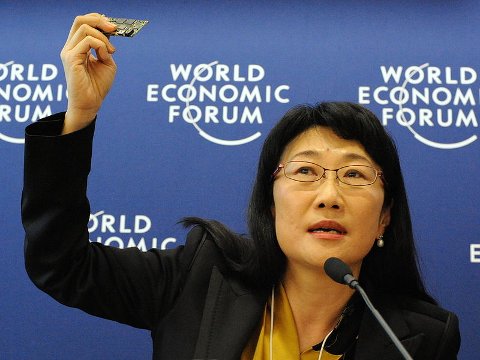

Cher Wang, Chairwoman of HTC (source)
TWO and a half years ago Apple officially launched its patent attack on Linux. It started with HTC, a company with few patents, and we covered it closely at the time. Well, the case has just been settled.
Smartphone manufacturer HTC and Apple Inc. announced Saturday a settlement ending the first major battle over software patents between the technology giants.
Along with a global patent settlement, the two companies announced they'd signed a 10-year license agreement that will extend to current and future patents held by one other.
Apple and HTC had battled patents over various smartphone features since March 2010.
[...]
Most of Apple's legal success has come in the battle against HTC as far as stymying the entry of products to the U.S. market.
In 2011 the U.S. International Trade Commission ruled that HTC infringed on one of four patents Apple had disputed and imposed a sales ban on some of the Taiwanese maker's phones.
Comments
Michael
2012-11-11 21:55:00
Please, Roy, *stop* lying. Apple never launched any attack against Linux. You are simply lying.
mcinsand
2012-11-12 17:48:23
Recently, Apple has suffered a couple of setbacks, and it's antireality distortion fields might be weakening. Even in their US win, publicity is firming up the case day-by-day that Apple's win against Samsung depended on a biased judge and an incompetent juror... to find Apple as a winning innovator was contingent on a broken court. The UK has been more firm and decisive. Apple's image is taking a beating daily and, since image is all Apple really has, they can't afford to keep sliding. In fact, if I was there to bet the first pint, I'd bet the second that Apple moves in the next month to find a way to 'cross-license' with Samsung to end the US case... before Apple's face is more egg covered.
If this had been a year or two ago, I would have no doubt that this would be the first step in Apple starting a new racketeering campaign to cow other handset suppliers. Things have changed, though. Barnes and Noble did a good job of damaging MS' use of this strategy when they published the bogus patents that MS was using. After the going over through Groklaw, I doubt any of them would survive re-examination, even by the USPTO. Apple made a huge mistake by being very public with the 'IP' it was using, and their patents look every bit as bogus. Although re-examinations cost money, each patent lost runs the risk of more cultmembers waking up to the fact that Apple is only image, not innovation.
My bet would be that at least a couple of people at Apple are realizing that this is a fight they can't win, so they'd better end it and the publicity as quietly as possible.
Michael
2012-11-12 22:36:19